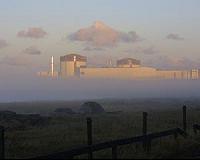 |
Islamabad (AFP) Sept 21, 2010 Pakistan on Tuesday implicitly confirmed it is holding talks with China to build a new nuclear power plant in the energy-starved South Asian nation. "We have an ongoing civil nuclear cooperation agreement with China which is according to our respective international obligations for peaceful purposes under the IAEA safeguards," foreign office spokesman Abdul Basit told AFP, referring to the International Atomic Energy Agency. The Wall Street Journal reported that China's main nuclear power company is in talks with Pakistan to build a one-gigawatt nuclear power plant. Pakistan's atomic activities have sparked concern in the United States and India, which fear that nuclear material could fall into the hands of Taliban extremists operating near the Pakistani border with Afghanistan. China has already built a 300-megawatt nuclear power reactor at Chashma in Punjab province and another of the same capacity will be operational later this year or early next year, an official told AFP on condition of anonymity. China has also been contracted to build two more reactors at Chashma, the official said. The Wall Street Journal reported that the state-run China National Nuclear Corp. (CNNC), plans to export another plant to Pakistan. "Both sides are in discussions over the CNNC exporting a one-gigawatt nuclear plant to Pakistan," company vice president Qiu Jiangang was quoted as saying by the WSJ. In Beijing officials at CNNC had no immediate comment when contacted by AFP. Pakistani nuclear expert Shahidur Rehman told AFP that talks have been going on to acquire a new nuclear power plant from China. Pakistan, facing acute shortage of energy, plans to produce 8,000 megawatts of electricity by 2025, he said adding that it would need Chinese help to achieve the target. The United States has conveyed its concerns to Pakistan over the contracts for the third and fourth reactors at Chashma, saying such plans required special approval from the Nuclear Suppliers Group (NSG). The group brings together nuclear energy states that forbid exports to nations lacking strict International Atomic Energy Agency (IAEA) safeguards. But the Pakistani official who did not wish to be named said the reactors do not require approval from the NSG. "They are under a memorandum of understanding signed before China joined the NSG," the official said. China joined the NSG in 2004. Pakistan has not signed the nuclear Non-Proliferation Treaty. Pakistan says its nuclear power plants meet IAEA safeguards. The country is able only to produce about two thirds of its required electricity, and daily power cuts hit homes and businesses nationwide. Power outages fuel discontent, have helped to cripple industry and have triggered violent protests, particularly in the sweltering summers. Western fears about nuclear proliferation from Pakistan spiked when scientist Abdul Qadeer Khan confessed in 2004 to sending nuclear secrets to Iran, Libya and North Korea, although he later retracted his remarks. Khan, who is revered by many Pakistanis as the father of the country's atomic bomb, was pardoned in 2004 but continues to face restrictions on his movement. The United States has warned that he still represents a nuclear proliferation risk.
Share This Article With Planet Earth
Related Links Nuclear Power News - Nuclear Science, Nuclear Technology Powering The World in the 21st Century at Energy-Daily.com
 UN atomic watchdog sees 'new era' in nuclear energy
UN atomic watchdog sees 'new era' in nuclear energyVienna (AFP) Sept 20, 2010 There is a renaissance of worldwide interest in nuclear power as countries seek clean and stable sources of energy which will not exacerbate climate change, the UN atomic watchdog said Monday. "It is not an exaggeration to say that we have entered a new era." the head of the International Atomic Energy Agency, Yukiya Amano, told the body's annual general conference on its first day. Some ... read more |
|
| The content herein, unless otherwise known to be public domain, are Copyright 1995-2010 - SpaceDaily. AFP and UPI Wire Stories are copyright Agence France-Presse and United Press International. ESA Portal Reports are copyright European Space Agency. All NASA sourced material is public domain. Additional copyrights may apply in whole or part to other bona fide parties. Advertising does not imply endorsement,agreement or approval of any opinions, statements or information provided by SpaceDaily on any Web page published or hosted by SpaceDaily. Privacy Statement |